There are stories we read as children that stick to our bones and help us learn tough lessons that are easier to digest when told through a toy rabbit or a silly old bear. We bury them deep inside of our hearts and often they are forgotten, their origins a distant memory.
We know the lessons, but we tend to forget the friends that taught them to us. They are some of the most reliable things on earth; always true, always constant. A touchstone we can place in our palm to remind us what we’ve always known.
Here are five important life lessons from our old pals (in case you forgot!)
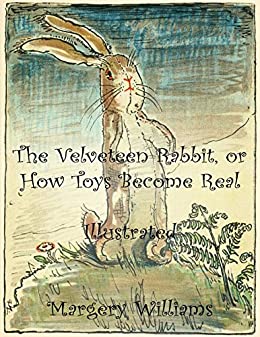
1. The Velveteen Rabbit by Margery Williams
A Lesson In Vulnerability.
There are multiple life lessons in this classic tale of a toy rabbit who wishes to become Real. One of the most profound is the lesson in vulnerability.
It is a terrifying thing to let yourself be vulnerable and open to people and being loved. It is also painful. The Skin Horse tells the rabbit he will become shabby, worn, perhaps lose an eye! All in the name of love.
Luckily, none of that matters when you are loved. Ugly, eyeless, scruffy. You are loved for who you are, every inch of you. Learning that lesson, you learn to love yourself as much as others you open yourself up to do.
If you keep yourself protected like a glass ornament that can not be handled or touched otherwise it will break, you may never find yourself experiencing love to its fullest possibilities.
You have to be brave and let yourself be breakable. It is impossible at times to remember that vulnerability is incredibly powerful and helps fuel the most meaningful relationships we have as human beings.
But if you think of the little toy rabbit, it all comes flooding back.
“You become. It takes a long time. That’s why it doesn’t happen often to people who break easily, or have sharp edges, or who have to be carefully kept. Generally, by the time you are Real, most of your hair has been loved off, and your eyes drop out and you get loose in the joints and very shabby. But these things don’t matter at all, because once you are Real you can’t be ugly, except to people who don’t understand.”
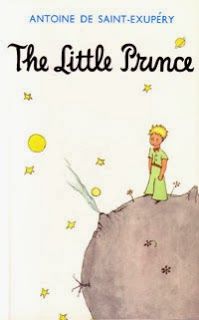
2. The Little Prince by Antoine De Saint-Exupery
A Lesson in Time
One of the main morals of this stunning French tale is about time spent. The boy leaves the rose that he cares for behind to explore new worlds. In doing so, he realizes how he misses her as he passes by a rose garden.
His new friend, the fox, lets him in on the secret. His rose is special to him because he’s cared for it, loved it, listened to it. He has given time to his rose. What he feels for his rose is felt in his heart, not his eyes.
At first glance, his rose looks the same as they all do. But when he looks with his heart, he knows that his rose is unique and stands out from all the rest because of the time he has spent with her.
Oftentimes we forget to appreciate the journey to the destination, the time spent with others or caring for creatures and things shapes who we are. It is not always the end result that matters most, but how we got there.
No time is ever wasted; it is spent creating and changing and growing parts of ourselves whether we see it straight away or not. When you come out the other side of whatever journey you are on, look with your heart at the path that leads you there.
“It’s the time you spent on your rose that makes your rose so important.”
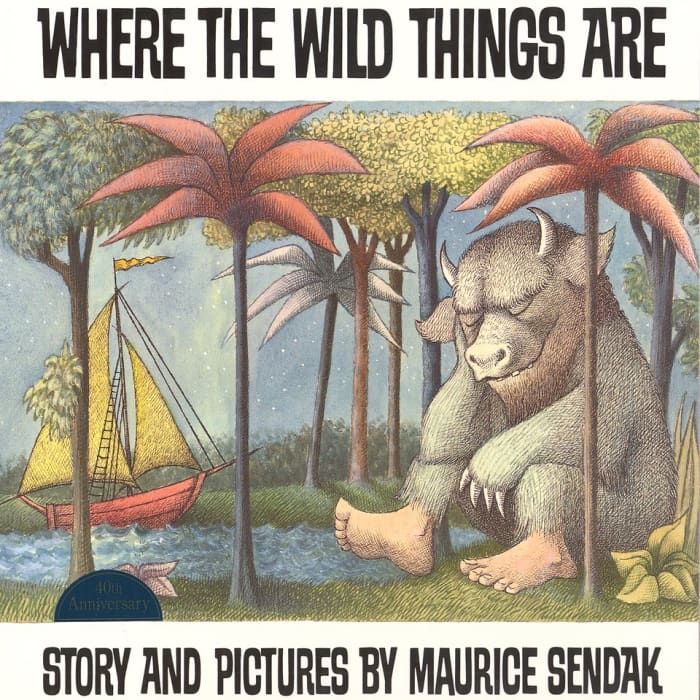
3. Where The Wild Things Are by Maurice Sendak
A Lesson In Your Wild
We are all wild things. In this treasured imaginative story, the boy king Max learns that it is okay to let loose and be wild. We all have that primal creature that dwells within and longs to be let out of their cage to howl at the moon once in a while.
Our wild is precious, valuable, and essential to combat the need to feel and be responsible at all times. It is the magic that makes us unique and curious. Our imaginations, our curiosity, our desire to explore. That is all part of our wild that too often gets shoved to the side to make way for adulting.
Your wild is what makes you YOU. Do not let anyone tame it or change it. Plenty of things will try and take it away or dim it in such a way that it is forgotten. Make sure to let it out whenever you can and find people who love your wild as much as you do.
“And Max, the king of all wild things, was lonely and wanted to be where someone loved him best of all”
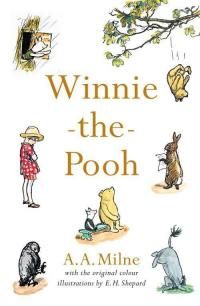
4. Winnie the Pooh by AA Milne
A Lesson In Simplicity
Simplicity is hard to come by as responsibilities grow as we do. Jobs, bills, family, social life, hobbies all fill our plates until there is no room for the simple things we used to cherish as children.
Pooh and his friends remind us to take our time, do nothing for a day, and find simple joys: balloons, bubbles, bright flowers. There doesn’t always have to be a rush or a deadline. Sometimes sitting still can be the greatest teacher we have. Entertainment does not have to be expensive or fancy; it can be flying a kite or a dance party in your kitchen.
Life never seems simple when you’re a grown up. It is important to remember that the simple pleasures are among the greatest we have. The moments we truly cherish. Little bits of magic floating around in the world that sweep us up and away like a balloon taking flight.
“Nobody can be un-cheered with a balloon.”
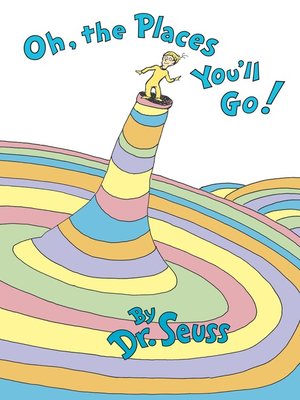
5. Oh the Place You’ll Go by Dr. Seuss
A Lesson In Feeling Stuck
Ooof, this book, am I right? What a perfect magical thing that is somehow even more poignant as an adult. It is a marvel as many Dr. Seuss books are: we value them even more when we are grown.
There is plenty here in these pages of lessons to carry with us forever and always. One of them is the harsh reality of getting stuck.
You are racing ahead, checking off boxes, achieving goals, living your life. And suddenly, you find yourself lost, confused, frustrated. Doubt flies in and sinks its talons into you. Sadness overtakes you and you stall, you freeze, you sink.
This is NORMAL. This is okay. This is the part where you take a breath, slow down, and refocus. It is against our instincts to do this. Most of us want to continue to blaze ahead, and that is when we get even more stuck in what Dr. Seuss calls “The Waiting Place.”
People in that place get so stuck in their sadness and doubt that they merely wait for something to change instead of making a choice for themselves. You can be stuck in the Waiting Place for a long time, giving up on yourself and letting doubt win.
You can get so confused
that you’ll start in to race
down long wiggled roads at a break-necking pace
and grind on for miles across weirdish wild space,
headed, I fear, toward a most useless place.
The Waiting Place…
Try and steer clear of the Waiting Place. We all get stuck sometimes. We all doubt ourselves and our choices.
But we always have the power to make a change and move forward. It does not always need to be at an impossible speed. If we get lost, we can find our way out of it. Getting stuck means we are onto something. Getting stuck means we are trying.


1 Comment
Love the writings almost made me feel like a little girl again – well maybe not so much that because there were not so many wonderful books when I was a child many years ago so I will say it brought back great wonderful memories of reading to my Grandchildren – Keep up your good work